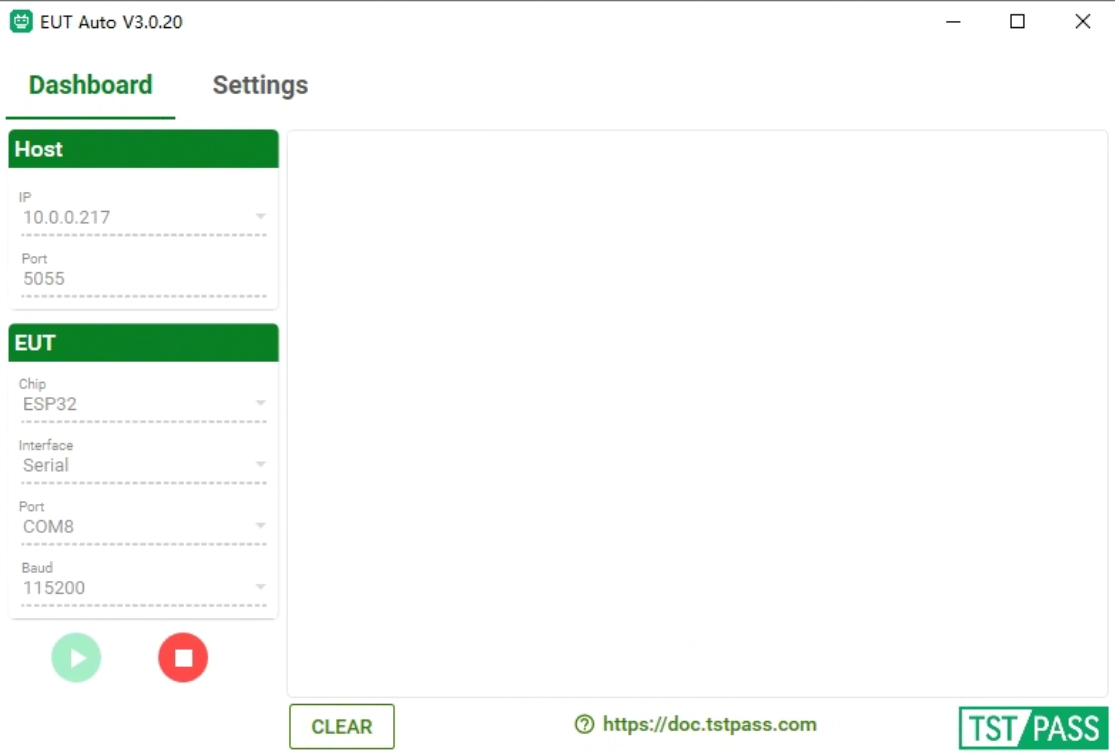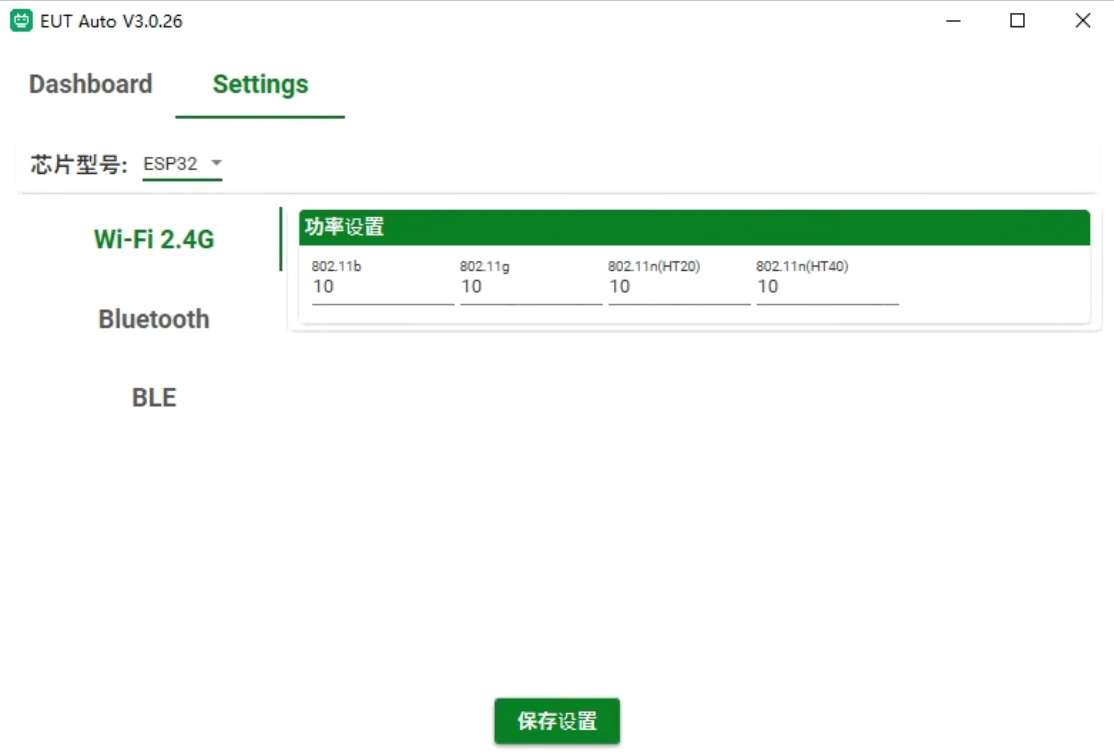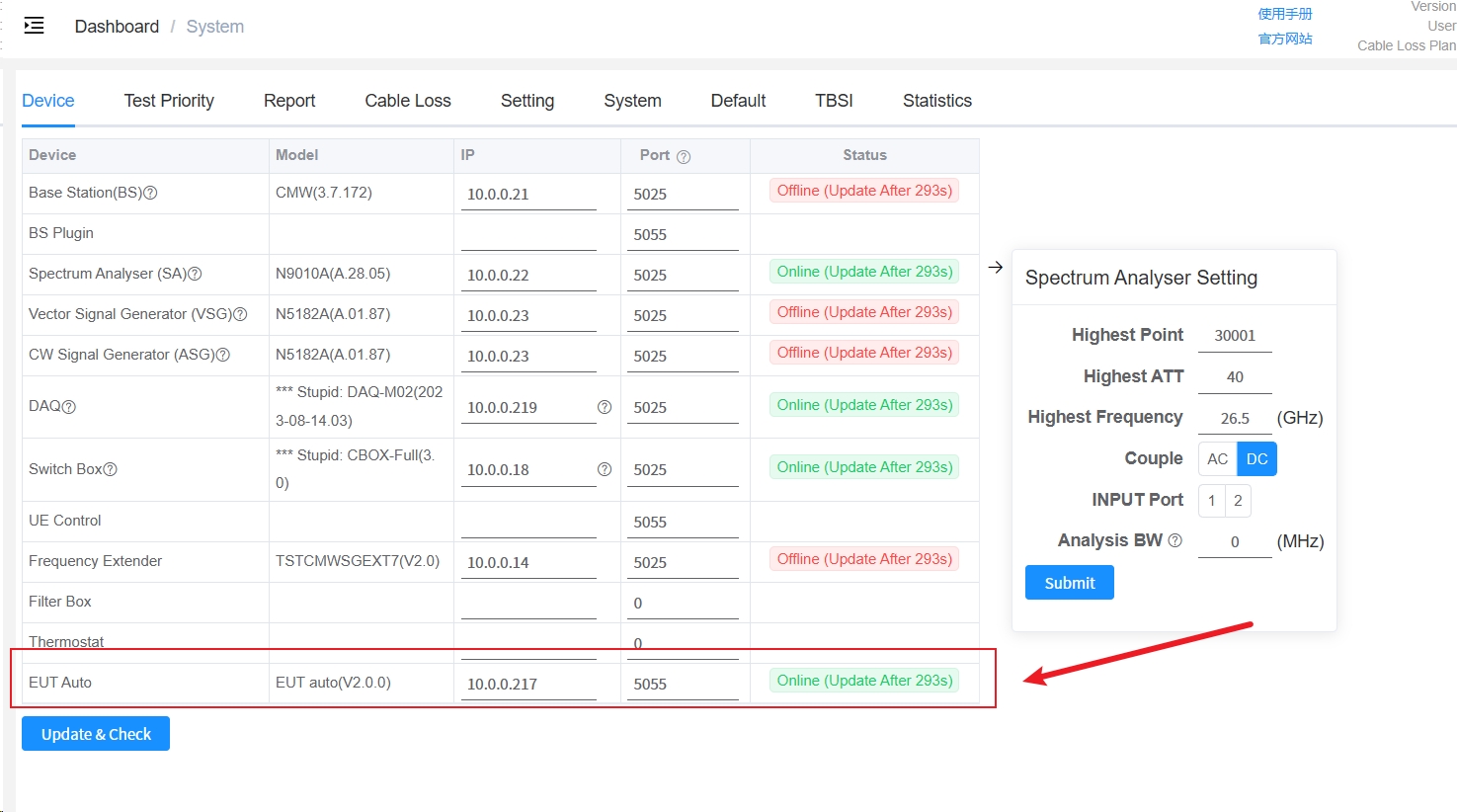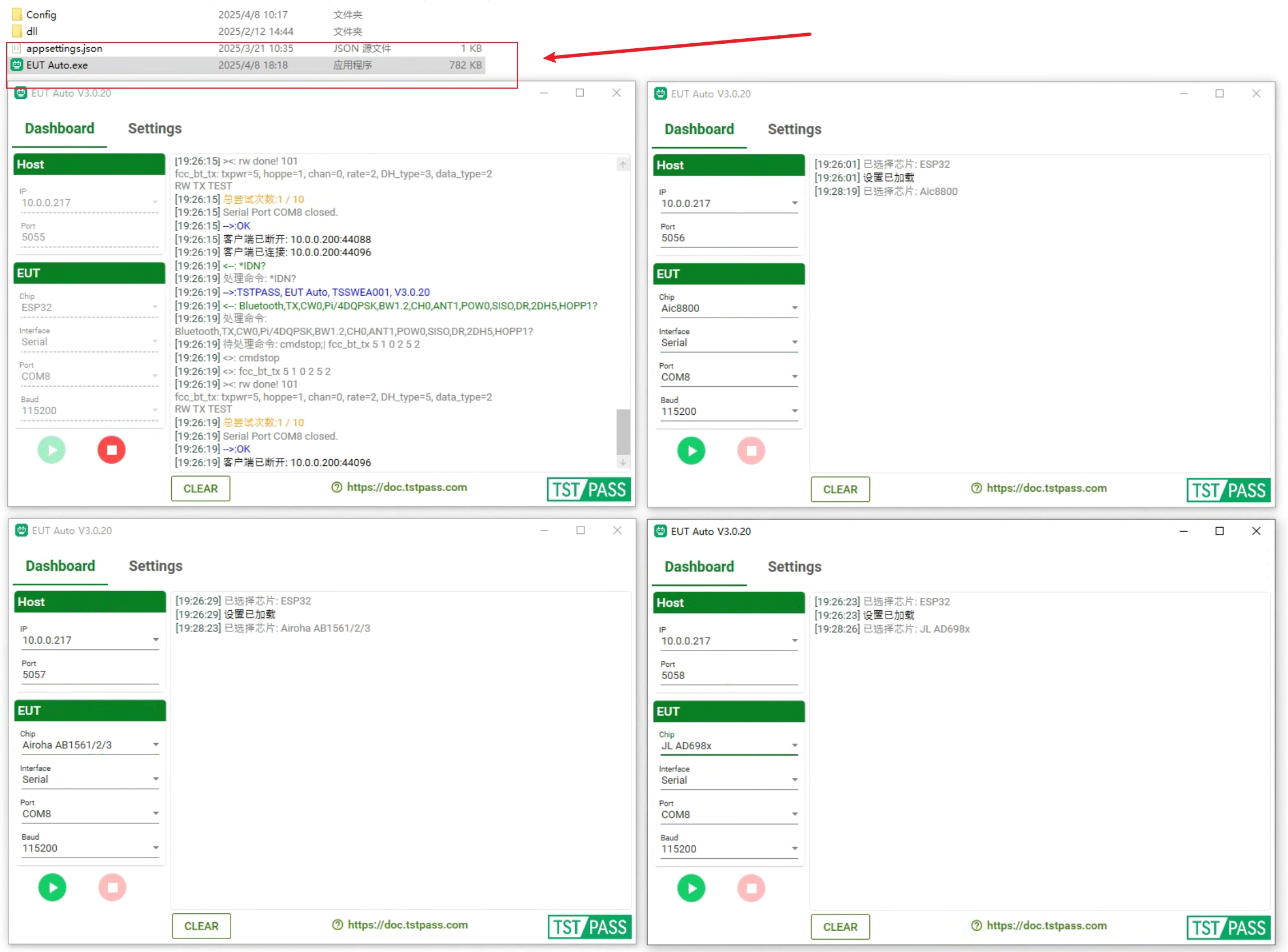Pass System Automatic Fixed-Frequency Test
Basic Operations
Step 1: After connecting the hardware devices, open the corresponding automatic fixed-frequency script (taking Esp32 as an example)

- In the IP field, select the corresponding IP
- In the Port field, select the corresponding serial port
- Set the corresponding Baud according to requirements
- Set the corresponding power in the Settings field according to requirements
Step 2: Set the corresponding EUT Auto Setting (taking Esp32 as an example)

- In the sidebar in the figure, select the function to be set
- Set the corresponding power according to project requirements
- Click the Save Settings button to save the settings
- Return to the Dashboard page and click the start button to begin automatic fixed-frequency testing
Step 3: Set the corresponding EUT Auto IP in the TST PASS system

Note:
Entering the EUT Auto IP is considered as enabling automatic fixed-frequency testing, and subsequent tests can proceed normally without pop-up fixed-frequency prompts.
If subsequent tests do not require automatic fixed-frequency testing, please delete the IP here.
Support for Simultaneous Automatic Fixed-Frequency Testing of Multiple Samples

- Click EUT Auto.exe to open multiple automatic fixed-frequency windows simultaneously
- Provided the samples are correctly set up and connected, different automatic fixed-frequency windows can select the corresponding chip type
- Click the start button for each window one by one to begin automatic fixed-frequency testing
Note:
- When performing automatic fixed-frequency testing on multiple samples simultaneously, different Host Ports must be set to avoid fixed-frequency conflicts.
- Some samples may require pre-configuration, depending on the actual usage scenario.
- When performing automatic fixed-frequency testing on multiple samples simultaneously, pausing or configuring one sample individually does not affect the automatic fixed-frequency testing of other samples.
- The samples supported by the automatic fixed-frequency software are continuously being updated. For details, please see Supported Samples
